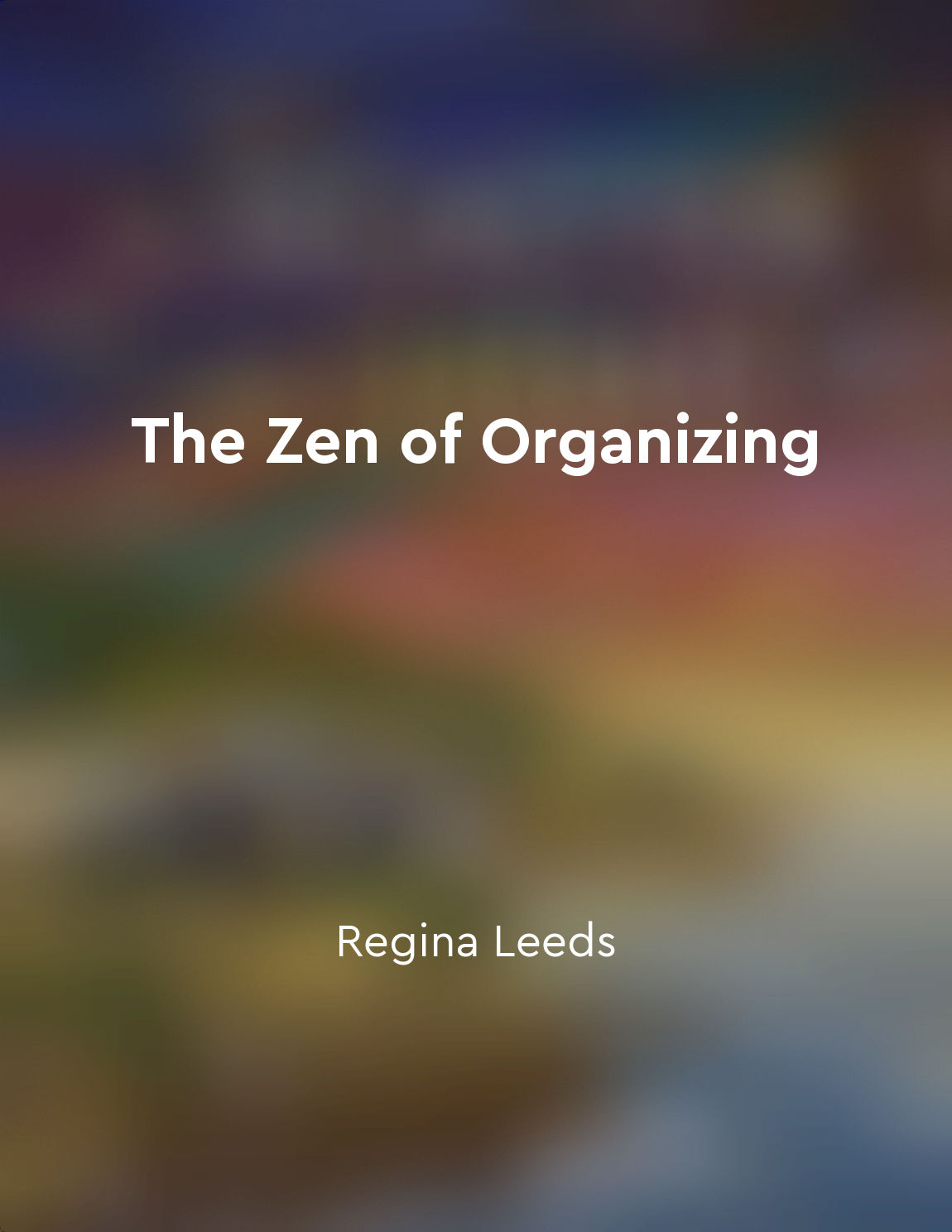Establish routines from "summary" of How to Stop Losing Your Sh*t with Your Kids by Carla Naumburg
One way to create a more peaceful and harmonious home life is to establish routines. When we have routines in place, we are able to move through our days with more ease and predictability. Routines provide a sense of structure and stability for both parents and children. They can help us feel more grounded and in control, even when life feels chaotic. Routines can also help reduce power struggles and arguments with our kids. When everyone knows what to expect and what is expected of them, there is less room for negotiation and conflict. Routines can help streamline daily tasks and make them feel more manageable. For example, having a morning routine can help get everyone out the door on time without the stress and drama of last-minute scrambles. Routines can also help foster a sense of connection and togetherness within the family. When we have shared routines, we have opportunities to bond and create memories together. For example, having a regular family dinner time can create space for meaningful conversations and quality time spent together. However, it's important to remember that routines are not meant to be rigid and inflexible. They should be adaptable to the changing needs and circumstances of family life. It's okay to deviate from the routine occasionally or make adjustments as needed. The goal is not perfection, but rather a sense of predictability and consistency that can help make life a little bit easier for everyone. By establishing routines, we can create a more peaceful and harmonious environment for ourselves and our children. Routines provide structure, reduce power struggles, streamline tasks, foster connection, and create a sense of predictability and consistency. While routines should not be rigid, they can help us navigate the ups and downs of family life with more ease and grace.Similar Posts
French parents emphasize the importance of teaching children to share
In France, parents believe that sharing is a crucial skill that children need to learn from a young age. They emphasize the imp...

Mindfully choose what to keep
When we approach the task of decluttering, it's essential to do so mindfully. This means being fully present, aware of our surr...

Rob is nostalgic for his youth
Rob finds himself constantly looking back on his younger days with a sense of longing and wistfulness. He reminisces about the ...
Let go of attachments to material possessions
One of the fundamental principles of Zen living is the idea of releasing our attachment to material possessions. This concept m...
Live with intention
When you live with intention, you are living in a way that is purposeful and deliberate. You are not simply going through the m...
Identify patterns in your relationships
When it comes to understanding our relationships, one important concept to grasp is the idea of recognizing patterns that exist...
Foster holistic development through wholebrain strategies
To help children develop in a well-rounded way, we need to consider the entire brain. This means incorporating strategies that ...

Stay true to your values
In the midst of the chaos and noise of the modern world, it is easy to lose sight of our true values. However, it is precisely ...
Learning from mistakes is a stepping stone to success
In the creative process, mistakes are inevitable. They are not only common but also necessary. Mistakes provide us with valuabl...
Monitor habits to identify and eliminate timewasting activities
The key to becoming indistractable lies in monitoring our habits to pinpoint and weed out time-wasting activities. By observing...
